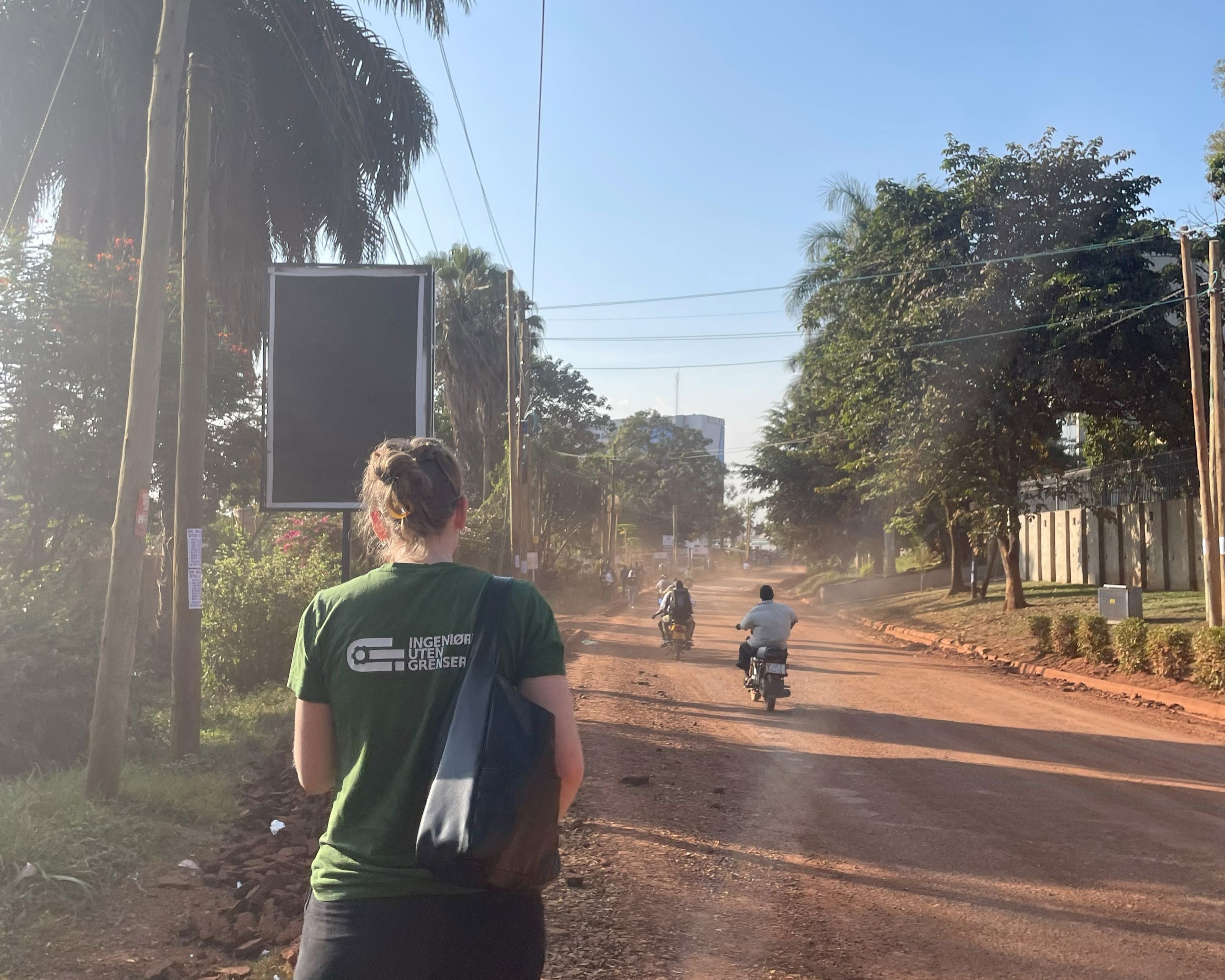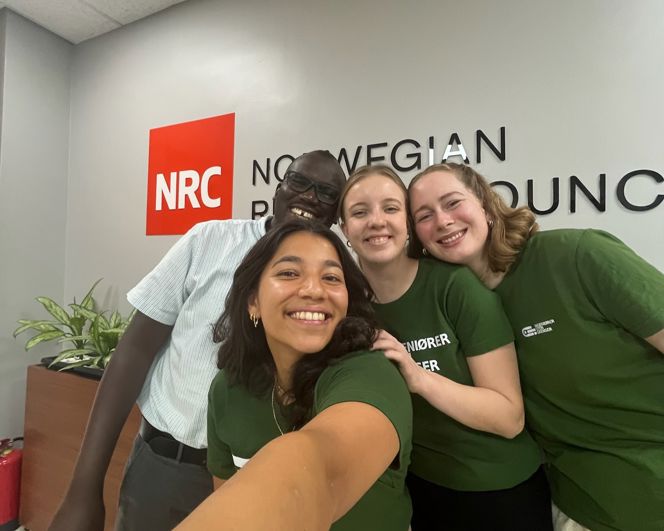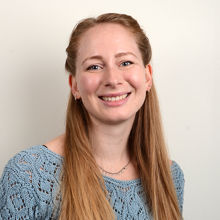On an IUG Mission to Uganda to Investigate How Technology Can Help People on the Run
"The mission gave me valuable experience as a mentor, insight into humanitarian work, the importance of innovation, and how to bring out the human perspectives in research," says Nellie Sofie Body from NGI – Norwegian Geotechnical Institute about the mission for Engineers Without Borders Norway (IUG).

NGI's Nellie Sofie Body on her way to the Norwegian Refugee Council's office for a mentoring mission for Engineers Without Borders. Photo: Private
In February 2025, she, along with two master's students from NTNU, spent a week with the Norwegian Refugee Council in Uganda's capital, Kampala. The theme of the master's thesis: Investigating how the Norwegian Refugee Council's use of technology can help refugees in Uganda.
"As a mentor, I was with the students in all the work and guided them in collecting data through semi-structured interviews," says Body.
Body works daily with issues related to climate and natural hazards.
"The mission in Uganda made it clear that the working methods we use at NGI can also be applied to other fields. From NGI, I have experience using semi-structured interviews in research and could advise the students on, among other things, how to build a good interview," says Body.
Warm, East African Reception
Body and the two NTNU students stayed at a hotel within walking distance of the Norwegian Refugee Council's offices. Beforehand, they had undergone security briefings with IUG, the Norwegian Refugee Council, and the digital security course "BSAFE."
"There was good follow-up before we left, and we felt well prepared. In Kampala, there was a lot of focus on security, with armed guards at the hotel and using fingerprints to open the door to the Norwegian Refugee Council's office. While we were there, there was an outbreak of the viral diseases Ebola and Mpox, so there was a lot of focus on hand hygiene and checking people's temperatures to see if they were sick," says Body.
But what she remembers most from her days in Kampala was the humor and laughter in her meetings with the Norwegian Refugee Council staff.
"On the first day, they were polite. But already from the second day, the joking comments and humor started. People were very friendly. I really enjoy such an open and outgoing culture as the one I encountered in Kampala."
Change Can Create Innovation
Body and the students saw up close the effect of Donald Trump's policy on aid work. The Norwegian Refugee Council in Kampala shares a building and garage with USAID. USAID's cars stood untouched in the garage, and the offices were empty.
"Despite a challenging situation, several aid workers pointed out that changes can also create innovation and force the establishment of good systems that support the work. The students' task of using technology to help people on the run is therefore even more relevant," says the NGI researcher.
Innovation Centers to Bridge the Education Gap
In Kampala, Body and the students experienced firsthand how refugees could get help borrowing a computer to acquire new knowledge or complete interrupted education.
"The Norwegian Refugee Council's offerings at these Digital Innovation Hubs in Kampala are free. I will remember the conversations with these people fleeing Sudan, Congo, and Eritrea. They have the same dreams for the future as we do in Norway. As a Norwegian, we have all the opportunities. As a mentor, it was therefore nice to be able to contribute with my knowledge and experiences," says Body.

Hassan Mpanga (Norwegian Refugee Council), Branny Lin (student, NTNU), Ragnhild Bodsberg (student, NTNU), and Nellie Sofie Body (mentor, NGI) worked together to collect data on how the Norwegian Refugee Council's use of technology can help refugees in Uganda. Photo: Private

Nellie Sofie Body
Project Engineer II Remote Sensing and Geophysics nellie.sofie.body@ngi.no+47 975 85 889